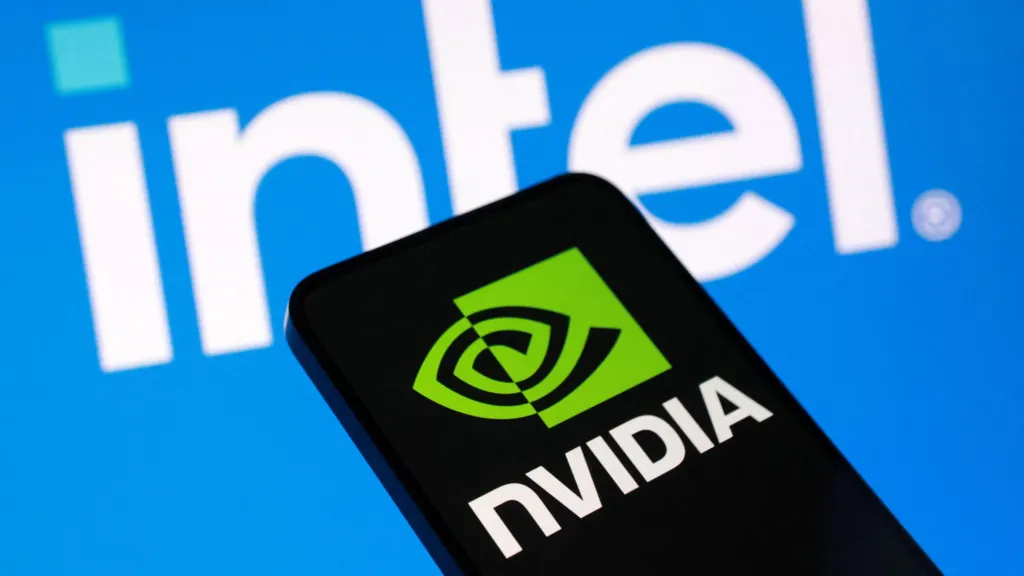Nvidia, the world’s leading manufacturer of artificial intelligence chips, has announced it will take a $5 billion (£4 billion) stake in rival Intel, providing a much-needed boost for the struggling U.S. semiconductor giant. The investment, revealed on Thursday, follows closely on the heels of fresh government funding for Intel and signals a rare partnership between two of Silicon Valley’s most prominent competitors.
The deal will see Nvidia acquire roughly 4% of Intel’s shares, making it one of Intel’s largest investors. As part of the agreement, the two companies will collaborate on the development of next-generation chips designed for personal computers and data centres. With global demand for AI technology skyrocketing, both firms are looking to secure their positions in powering the massive infrastructure needed to run artificial intelligence models and applications.
The market responded swiftly to the news. Intel’s stock soared more than 25% following the announcement, reflecting investor optimism that the deal could help revive the fortunes of a company that once dominated the semiconductor industry but has struggled in recent years to keep up with rivals. Nvidia shares also rose by around 3%, underscoring the positive reaction to the strategic tie-up.
For Intel, the partnership provides not only a financial lifeline but also access to Nvidia’s leadership in AI chip design, a field where Intel has lagged behind. For Nvidia, the move secures deeper influence in the broader semiconductor market while diversifying beyond its already dominant position in graphics processing units (GPUs).
Industry analysts say the investment could reshape dynamics within the chip sector. Once fierce competitors, Nvidia and Intel are now aligning interests at a time when global supply chains, national security concerns, and surging demand for advanced chips are transforming the industry. The collaboration is expected to focus on meeting the needs of cloud computing providers, data centres, and PC manufacturers racing to integrate AI into their products and services.
The deal comes against the backdrop of intensifying geopolitical competition in the tech sector, with the U.S. pushing to strengthen domestic semiconductor production to reduce reliance on overseas manufacturing. For Washington, a stronger Intel supported by private and public investment could prove critical to those efforts.
By taking a sizeable stake in Intel, Nvidia has not only strengthened its rival’s financial standing but also positioned itself as a central player in shaping the future of U.S. semiconductor strategy. As demand for AI accelerates, the partnership between the two American giants highlights how collaboration—even among rivals—can be key to surviving and thriving in a rapidly evolving global technology race.



0 Comments